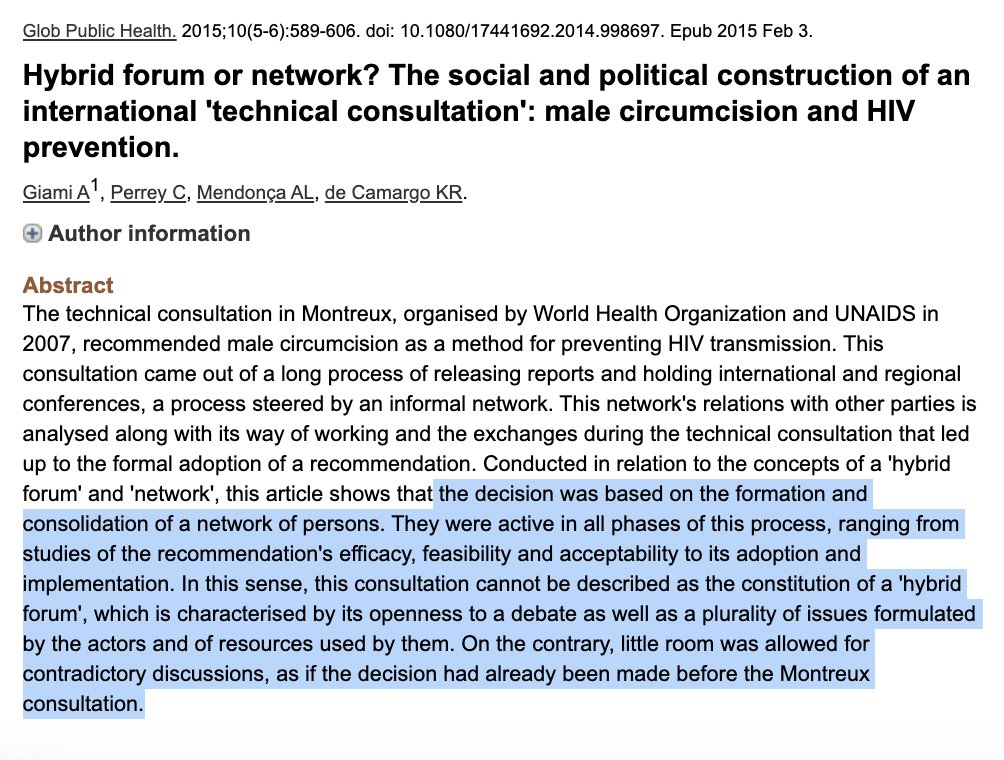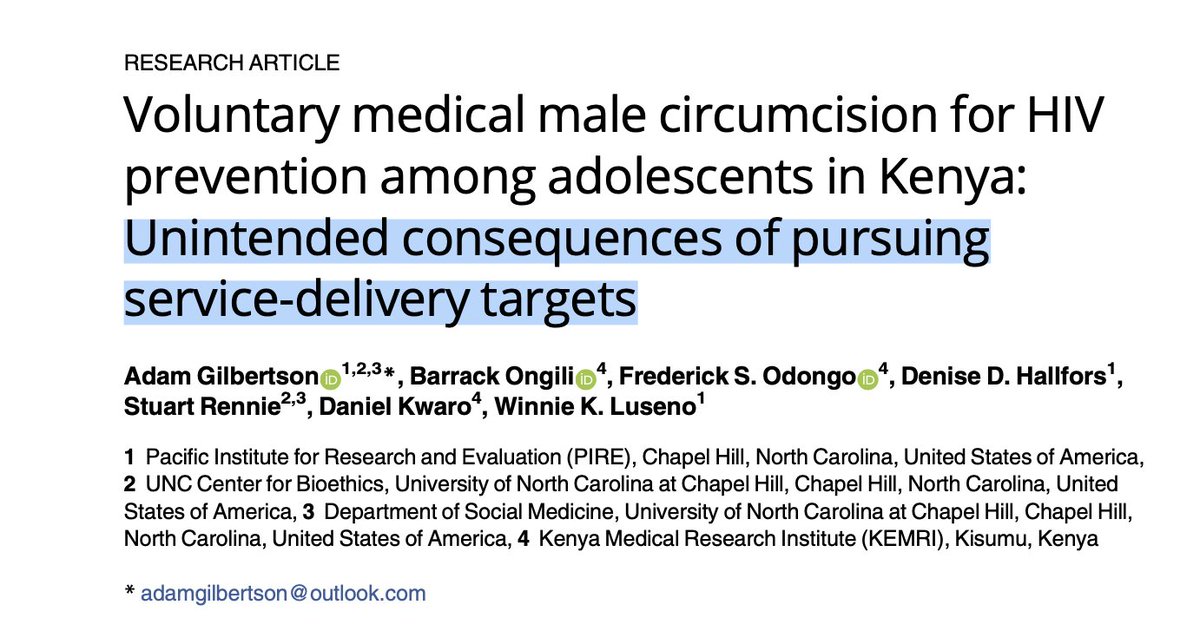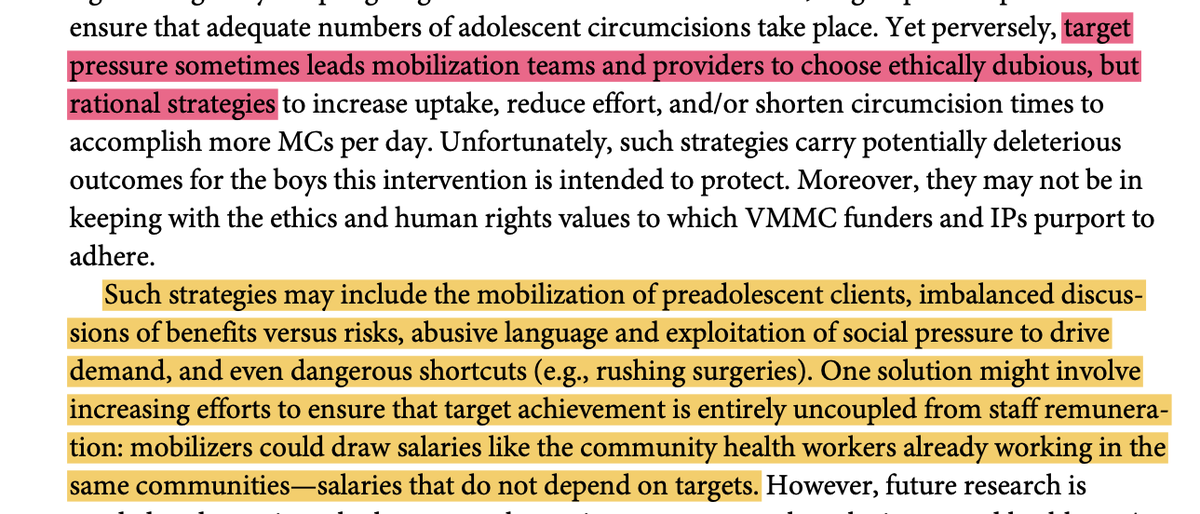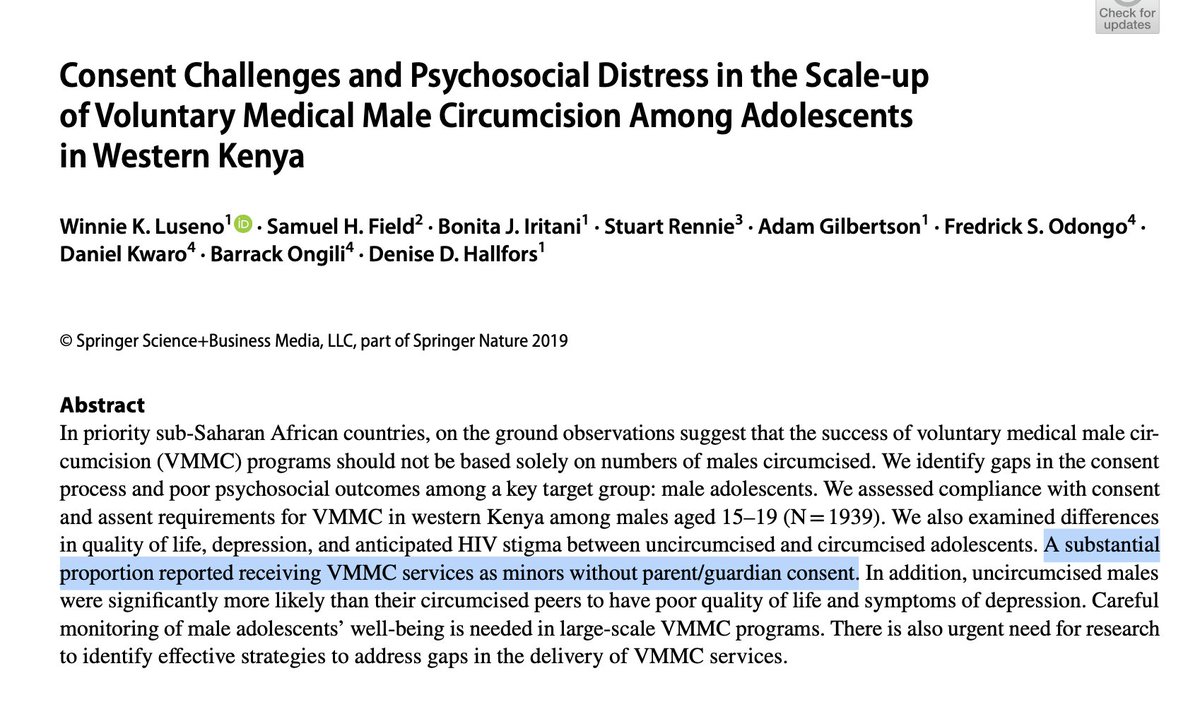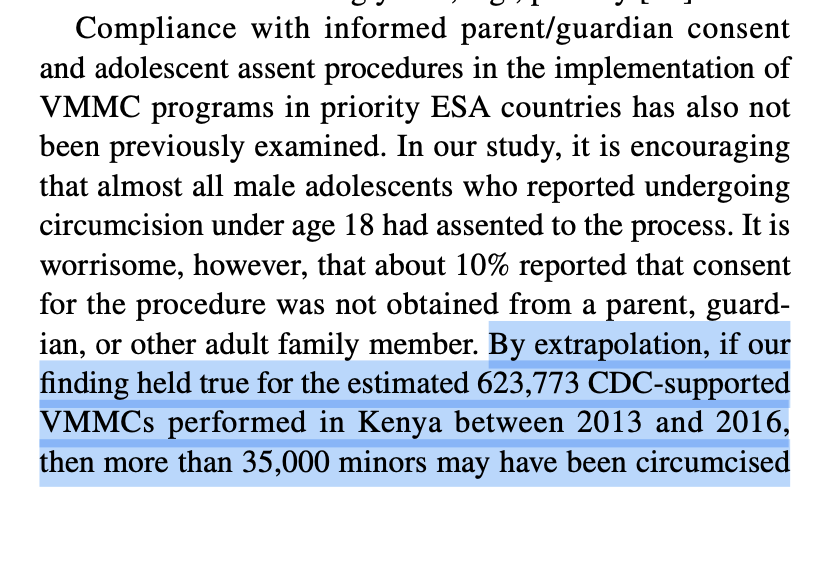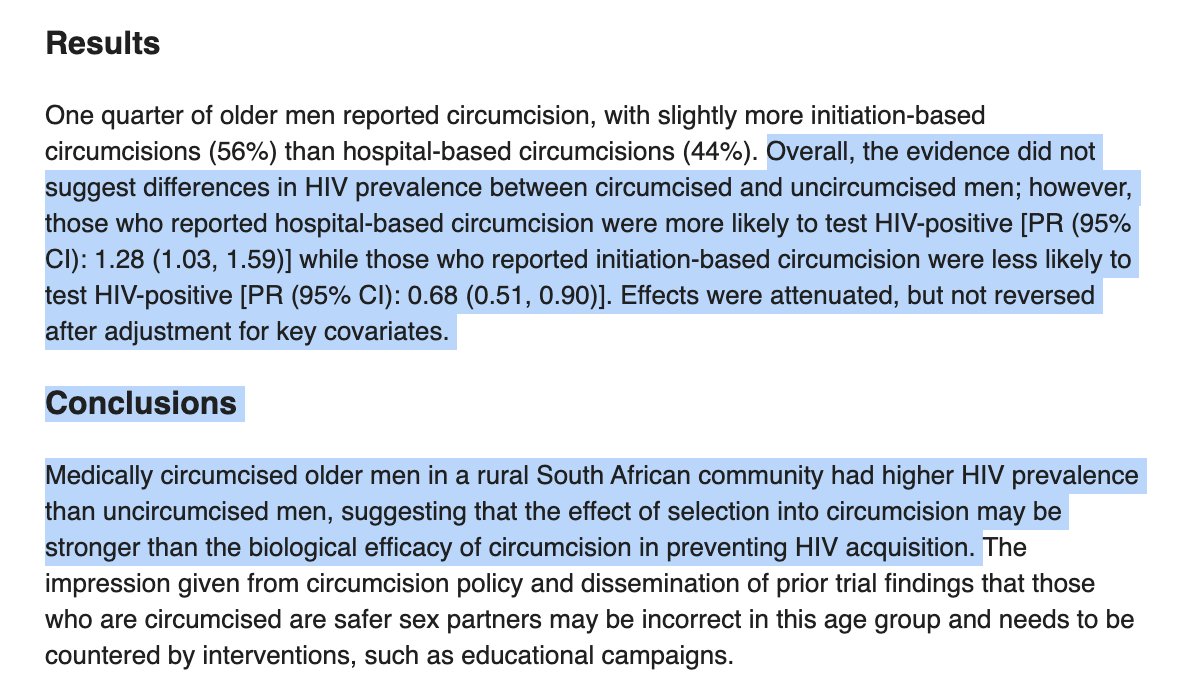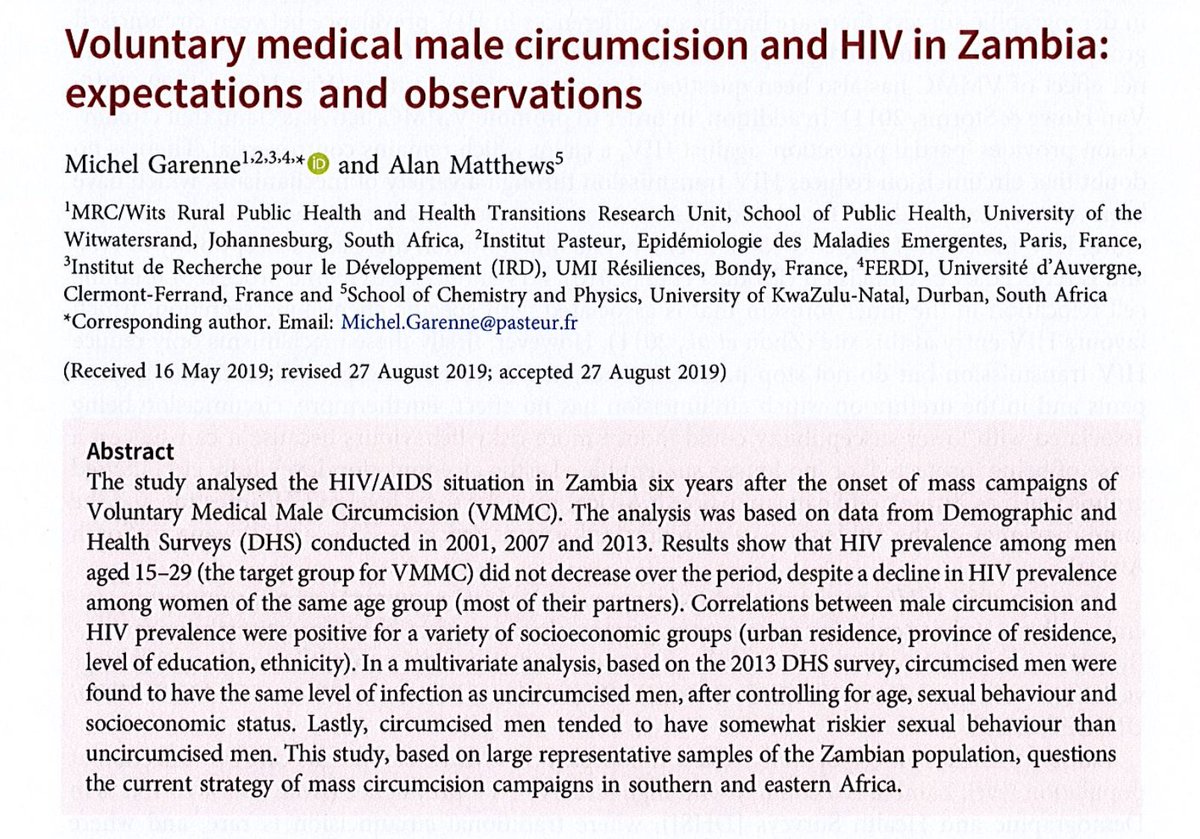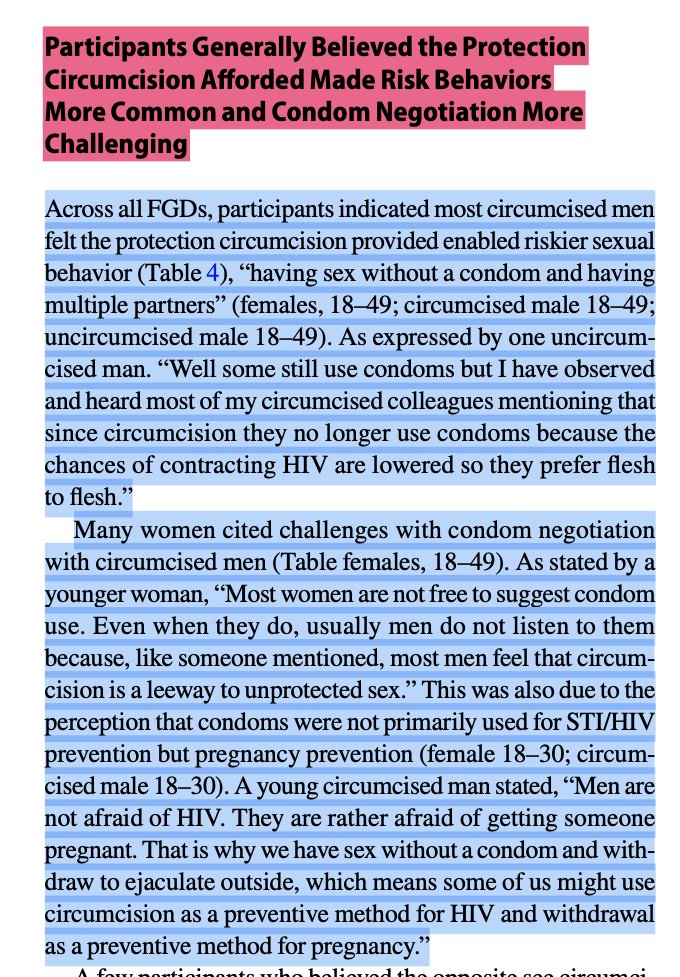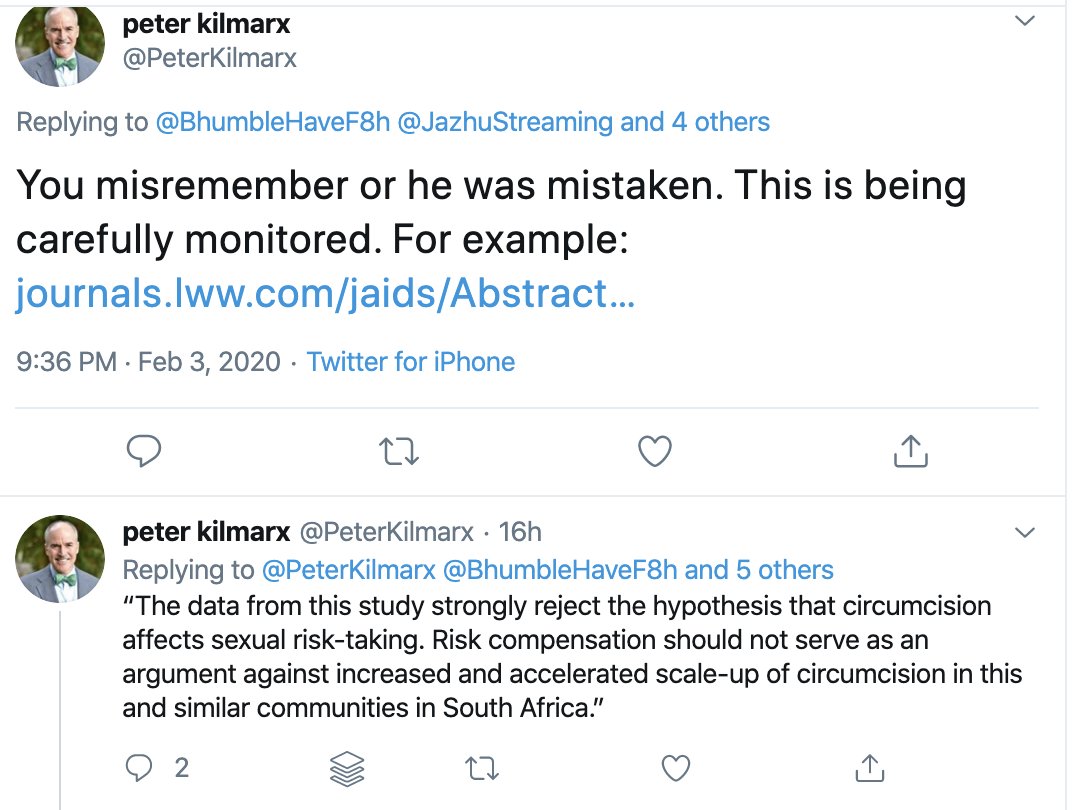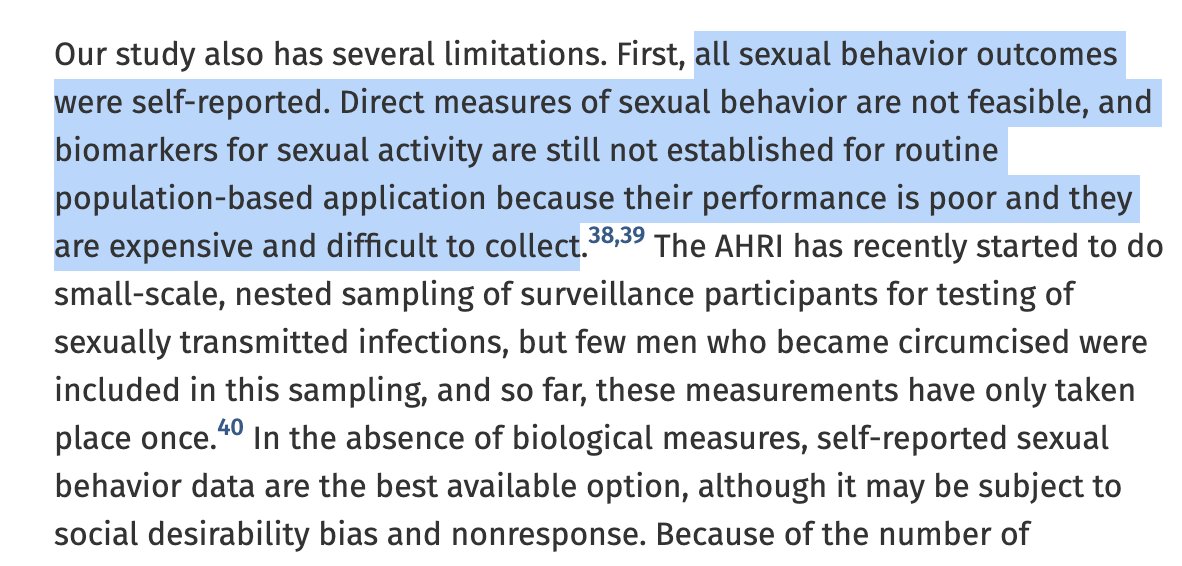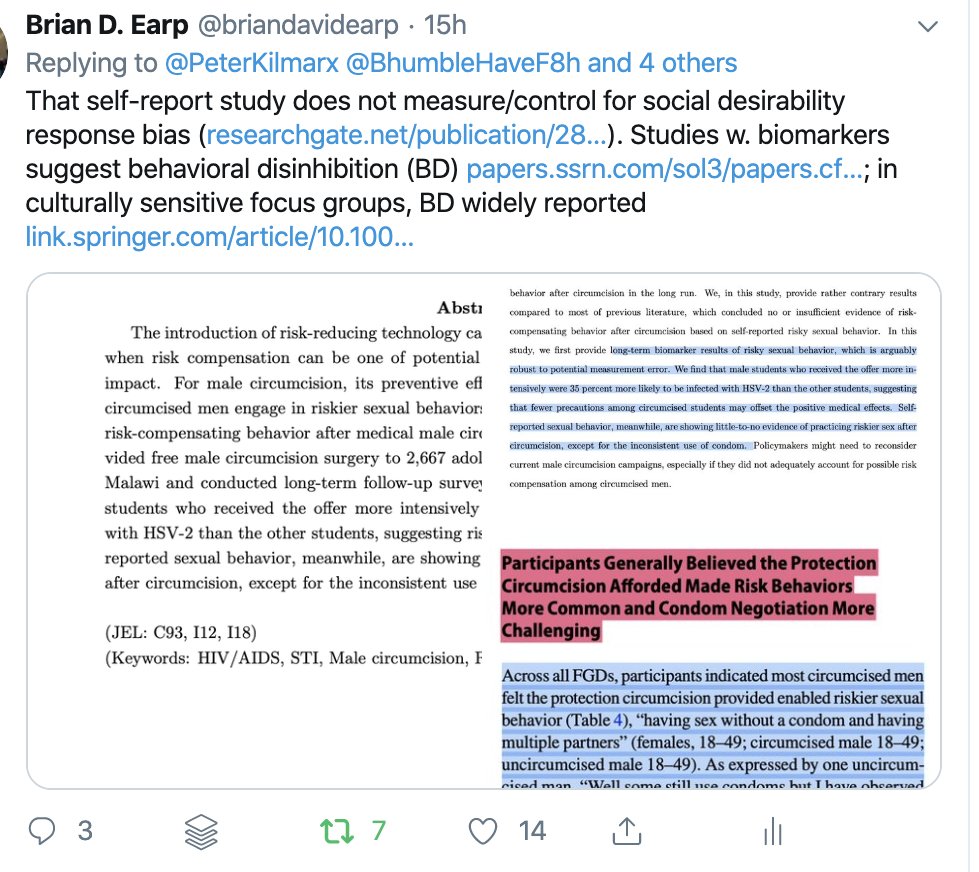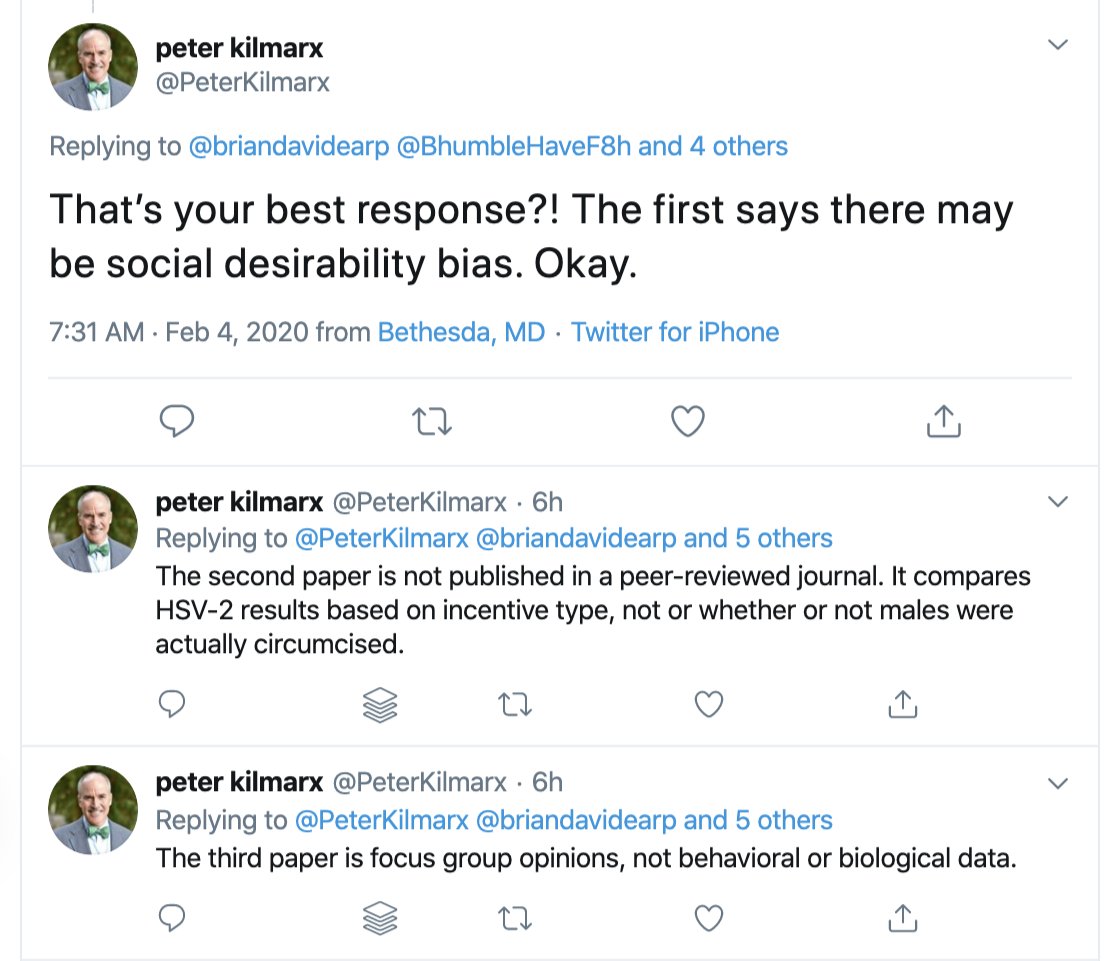Very disturbing to see this lack of scientific nuance from one of the main people responsible for driving US policy & funding toward a mass surgical campaign affecting the genitals of millions of Africans. There are multiple things wrong with this statement ... [THREAD] https://twitter.com/PeterKilmarx/status/1224710091355631616">https://twitter.com/PeterKilm...
First, it is false there is "no debate in science community" re original RCTs. Rather, those with critiques were ignored or shut out by those driving agenda, a small network of circumcision advocates active in all stages of the science-to-policy pipeline https://www.ncbi.nlm.nih.gov/pubmed/25646671 ">https://www.ncbi.nlm.nih.gov/pubmed/25...
Second, even if one accepts RCT findings at face value, despite critiques (e.g., re: confounds & obvious lack of placebo control), they pertain to adult, voluntary circ under "ideal" clinical conditions as part of trials led by long-time circ proponents; (cont& #39;d)
with no clear understanding (but much speculation) re: supposed mechanism of action, & considerable uncertainty about how well results can scale under real-life conditions w. sensitivity to diverse cultural contexts across target countries and regions. The "main issue" (cont& #39;d)
is certainly NOT "what were the efficacy results of the original RCTs, assuming one ignores the critiques of methodology, etc." but what is the real-world effectiveness under non-ideal conditions, what negative externalities might there be, & what are the ethics of mass surgery?
Scientists with a more nuanced approach than those driving the circumcision campaign have raised very serious concerns about real-world implications and implementation. Gilbertsen et al. (2019), for example, document extremely disturbing "unintended consequences" such as (cont& #39;d)
unethical coercion & exploitation of preadolescents who do not understand the statistics thrown at them, imbalanced discussion of benefits vs. risks, and "dangerous shortcuts" such as rushing surgeries in sub-standard conditions with respect to sanitation, etc. Moreover, (cont& #39;d)
Luseno et al. (2019) estimate that more than 35,000 CDC-sponsored circumcisions in Kenya alone between 2013-2016 may have been done on non-consenting children *without even parental permission* (which legally renders the surgeries assault and battery). Finally, there is some
emerging work suggesting that, in some regions, HIV may have become more prevalent among medically circumcised males since start of the mass campaign, for example, Rosenberg et al. (2018) ( https://journals.plos.org/plosone/article?id=10.1371/journal.pone.0201445),">https://journals.plos.org/plosone/a... Garenne et al. (2019) ( https://www.ncbi.nlm.nih.gov/pubmed/31608845 )">https://www.ncbi.nlm.nih.gov/pubmed/31... - see screenshots
One possibility that has been raised repeatedly in the literature is that behavioral disinhibition may occur in some cases: the above studies, for instance, indicate many are misled to believe circ will make them "immune" from HIV, such that condom-use is no longer required ...
Consistent w this, Ledikwe et al. (2020) held 27 in-depth focus groups w 238 Botswana community members, finding in all groups, wide agreement that many circumcised men no longer used condoms, e.g., "chance of HIV lower, so they prefer flesh to flesh" https://link.springer.com/article/10.1007/s10508-019-01589-7">https://link.springer.com/article/1...
When alerted to these results, @PeterKilmarx linked to this paper ( https://journals.lww.com/jaids/Abstract/2019/03010/Does_Incident_Circumcision_Lead_to_Risk.6.aspx)">https://journals.lww.com/jaids/Abs... which hyperbolically and in a blanket fashion asserts that their data "strongly reject the hypothesis" that circumcision (in any way) affects sexual risk taking. So I read the study ...
and found that all sexual behavior outcome variables were self-reported, with no biomarkers, and not even an attempt to measure and control for social desirability response bias, which is an enormous concern for studies like this. Obviously, admitting to an investigator that ...
that you& #39;re engaging in riskier sex could be pretty embarrassing (the data came from in-person interviews). So I sent @PeterKilmarx a paper emphasizing importance of accounting 4 SDR bias in such studies, plus some prelim. data w. biomarkers suggesting potential risk compensation
He responded as seen below. I found his response worrying. SDR bias is huge concern in this area; he simply dismisses it. Prelim data he dismisses as not yet peer-reviewed, perhaps unaware of research showing peer review is v. poor quality control; u have to read papers yourself
(for a short overview, see …https://breast-cancer-research.biomedcentral.com/articles/10.1186/bcr2742).">https://breast-cancer-research.biomedcentral.com/articles/... And the focus group results from Ledikwe et al. (2020) he dismisses as "opinions, not behavioral or biological data." But wait, the study he touted as "disproving" the risk compensation hypothesis also did not have such data!
Saying "That& #39;s your best response?!" makes me wonder if @PeterKilmarx thinks this is some kind of pissing match in which the point is to "win" the debate. By contrast, I would have thought that a careful, curious scientist, when shown a paper w. uniform agreement that many men..
in one& #39;s community have admitted to no longer wearing condoms post-circ, explicitly stating they feel protected from HIV so more licensed to enjoy "flesh on flesh" sex, would be at least slightly motivated to reflect on this & why the results seem to differ from other surveys ...
Perhaps people feel more comfortable reporting what they learn re: other community members& #39; behavior, in a focus group setting, for example, than about their own risky behavior in a one-on-one interview. Or perhaps there are some contextual variables that make a difference. But
@PeterKilmarx does not seem concerned about such nuance, stating elsewhere that circumcision is a "local custom in Africa" - homogenizing many diverse ethnic groups - despite the fact that the current campaign targets precisely the traditionally non-circumcising groups. It is...
alarming, to me at least, that so many of the drivers of this mass campaign to conduct millions of genital surgeries on vulnerable African populations have so little interest in social context, cultural variation, in-depth qualitative research, or findings that are in tension w/
the dominant (well-funded) paradigm. The bioreductionist approach that doesn& #39;t even see the ethical red flags here, the backdrop of cultural imperialism, the limitations of assigning numbers to complex sociocultural phenomena, etc., is myopic and irresponsible. History will not
look kindly on this crusade to re-engineer local African cultural norms, impose a mass surgical campaign targeting the genitals of increasingly young boys who don& #39;t seem to understand the implications, etc., all while ignoring nuance & dismissing criticism out of hand. It is not
an accident that most of the people driving this policy are white, circumcised men from the United States, raised in a culture where surgically modified male genitalia are seen as normative. The US funds & publishes vast majority of pro-circ literature. Little incentive to doubt.

 Read on Twitter
Read on Twitter